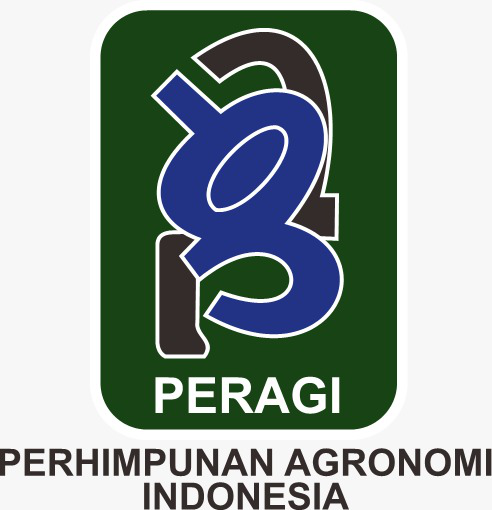Effectiveness of Using Liquid Organic Fertilizer Rice Wash and Coffee Grounds to Increase the Growth of Tomato Plants (Allium ascalonicum L.)
Abstract
Tomato plants (Allium ascalonicum L.) are horticultural vegetable plants that are included in the eggplant group. Tomato plants are very much needed in the community because tomatoes are one of the most important vegetable ingredients in several types of vegetables. This study observed the growth of tomato plants under the influence of POC treatment of Rice Water and Coffee Grounds Waste. The method used in this study was a non-factorial Randomized Block Design (RAK) with three replications to see how the POC of rice washing water and coffee grounds waste affected the growth of tomato plants ( Allium ascalonicum L. ). With three types of treatment concentrations 0 (control), 100, 200ml POC and 0 (control), 75g, and 150g coffee grounds waste. The results of this research show that plants with a dose of 200ml POC have a high growth rate compared to other doses. With the same plant age, plant stem height occurred at a dose of 200ml, while the lowest number of leaves occurred at a dose of 0. This study found that administering a 200ml POC dose at 3MST showed a significant dose level, compared to other dose treatments. The results of this research show that a dose of 200ml POC of rice washing water is very suitable for the growth process of tomato plants, and the findings of this research can be used as a condition for getting tomato plant growth results.Downloads
References
Anomsari, SD and Prayudi, B. 2012. Tomato Cultivation. Research Center
Central Java Agricultural Technology. Semarang.
Asari. 2006. Horticultural Cultivation Aspects. University of Indonesia (UI-Press). Jakarta.
Central Bureau of Statistics. 2022. Vegetable crop production. Central Statistics Agency: Jakarta.
Hanifa, D., Sauqina, S., & Sari, MM (2022). The Effect of Providing Liquid Organic Fertilizer from Waste Water Washing Rice and Mustard Vegetables on the Growth of Tomato Plants (Solanum lycoersicium L). JUSTER: Journal of Applied Science, 1(3), 111-120.
Munir, Misbach; and M. Aniar Hari Swasono. 2013. "Potential of Organic Green Fertilizer (Trembesi Leaves, Paitan Leaves, Lamtoro Leaves) as an Element of Soil Fertility Stability". Pasuruan: Yudharta University Pasuruan.
Nely, 2015. "The Effect of Organic Fertilizer (Lamtoro Leaves) in Various Concentrations on the Growth of Mustard Plants." Factratuna Journal. Vol. 7 No. 2.
Mulyono, 2014.” Making Mol and Compost from Household Waste”. PT. AgoMedia Library: Jakarta.
Putra, RA, Sembiring, AK, Anggraini, DE, Sitanggang, LB, Amar, MR, Sihombing, PR, & Susilawati, S. (2021, December). Addition of liquid organic fertilizer from coffee grounds as nutrition in the hydroponic system for the growth of lettuce plants (Lactuca sativa L). In National Seminar on Suboptimal Land (Vol. 9, No. 2021, pp. 891-899).
Saputri, I. (2021). NPK analysis of liquid organic fertilizer from various types of rice washing water with different fermentation methods. Agrotech Journal, 11(1), 36-42.
Sunartadi, DR, Widjajanto, & Purbajanti, ED 2023. The effect of nitrogen doses based on organic fertilizer from coffee grounds waste and types of planting media on the growth and yield of mustard greens ( Brassica juncea L.). Agroplasma Journal, 10(1), 13–24.
Waruwu, F., Simanihuruk, BW, Prasetyo, P., & Hermansyah, H. 2018. Growth of oil palm seedlings in pre-nursery with different planting media compositions and concentrations of Azolla pinnata liquid fertilizer. Indonesian Journal of Agricultural Sciences, 20(1), 7–12. https://doi.org/10.31186/jipi.20.1.7-12
Wulandari, S., Syafitri, TM, Sella, EF, & Ningrat, BC 2023. Simple technology for using coffee grounds for liquid organic fertilizer. Dehasen Journal for the Nation, 2(1), 119–124.
Wardiah, W., Linda, L., & Rahmatan, H. (2014). Potential of rice washing water waste as liquid organic fertilizer for the growth of pakchoy (Brassica rapa L.). Biology Education: Scientific Journal of Biology Education, 6(1), 34-38.
Wijiyanti, P., Hastuti, ED, & Haryanti, S. (2019). The effect of the incubation period of fertilizer from rice washing water on the growth of green mustard plants ( Brassica juncea L.). Anatomy and Physiology Bulletin, 4(1), 21-28.
Winanti, AD, Depista, V., Putri, VRA, & Aquan, HM (2022, December). Effect of Using a Mixture of White Rice Washing Water Waste and Coffee Grounds as POC on the Growth of Caisim (Brassica juncea L.). In Proceedings Biology Education Conference: Biology, Science, Environment, and Learning (Vol. 19, No. 1, pp. 42-46).
Zega, U. 2022. The effect of giving coffee grounds on the growth of pak choy plants. Uniraya Journal, 1(1), 12–27.
Copyright (c) 2024 Solehuddin Siregar, Khairul Rizal, Yusmaidar Sepriani, Badrul Ainy Dalimunthe

This work is licensed under a Creative Commons Attribution 4.0 International License.
Authors who publish with Jurnal Agronomi Tanaman Tropika (JUATIKA) agree to the following terms:
Authors retain copyright and grant the Jurnal Agronomi Tanaman Tropika (JUATIKA) right of first publication with the work simultaneously licensed under a Creative Commons Attribution License (CC BY 4.0) that allows others to share (copy and redistribute the material in any medium or format) and adapt (remix, transform, and build upon the material for any purpose, even commercially) with an acknowledgment of the work's authorship and initial publication in Jurnal Agronomi Tanaman Tropika (JUATIKA).
Authors are able to enter into separate, additional contractual arrangements for the non-exclusive distribution of the journal's published version of the work (e.g., post it to an institutional repository or publish it in a book), with an acknowledgment of its initial publication in Jurnal Agronomi Tanaman Tropika (JUATIKA). Authors are permitted and encouraged to post their work online (e.g., in institutional repositories or on their website) prior to and during the submission process, as it can lead to productive exchanges, as well as earlier and greater citation of published work.







 More Information
More Information



